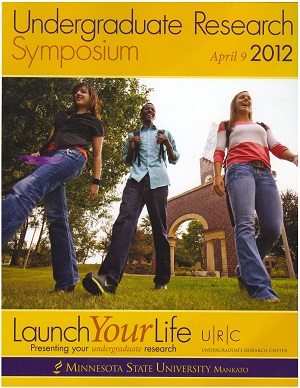Modern Mosques of the Midwest; Examining Identity of Regional Mosques
Location
CSU 202
Start Date
9-4-2012 4:00 PM
End Date
9-4-2012 5:00 PM
Student's Major
Art
Student's College
Arts and Humanities
Mentor's Name
Alisa Eimen
Mentor's Department
Art
Mentor's College
Arts and Humanities
Description
Through academic and hands-on research, this study investigates how identity is expressed architecturally at Midwestern Muslim centers in Minnesota, Wisconsin, and Chicago. This research considers the kinds of identities that regional mosques are representing in the twenty-first century, at a time when religious identities seem to be increasingly politicized. Questions that are important in the analysis of the selected mosques’ identities are: What identities are being represented and how? What services does the structure offer? In what ways does the structure communicate beyond its congregation? And, finally, how does the structure fit into fourteen centuries of mosque building? Published research of mosques in the traditionally-conceived Islamic world shows that cultural and religious identity is often reflected in buildings’ form and design. Because of that, after in-depth analysis, particular strategies and motifs in identity formations are apparent. The selected regions of research have similarities yet express differences supporting various identities through architecture. Acknowledging and understanding differences in identity is important because Islam can seem to be a very foreign religion. Through my research, I attempt to clarify how the structures meet both sacred and community services, functioning just like sacred spaces in other religious traditions. Important regional variations represent the rich diversity that exists in Islamic practice and indicate, most importantly, its adaptability based on the location of its community.
Modern Mosques of the Midwest; Examining Identity of Regional Mosques
CSU 202
Through academic and hands-on research, this study investigates how identity is expressed architecturally at Midwestern Muslim centers in Minnesota, Wisconsin, and Chicago. This research considers the kinds of identities that regional mosques are representing in the twenty-first century, at a time when religious identities seem to be increasingly politicized. Questions that are important in the analysis of the selected mosques’ identities are: What identities are being represented and how? What services does the structure offer? In what ways does the structure communicate beyond its congregation? And, finally, how does the structure fit into fourteen centuries of mosque building? Published research of mosques in the traditionally-conceived Islamic world shows that cultural and religious identity is often reflected in buildings’ form and design. Because of that, after in-depth analysis, particular strategies and motifs in identity formations are apparent. The selected regions of research have similarities yet express differences supporting various identities through architecture. Acknowledging and understanding differences in identity is important because Islam can seem to be a very foreign religion. Through my research, I attempt to clarify how the structures meet both sacred and community services, functioning just like sacred spaces in other religious traditions. Important regional variations represent the rich diversity that exists in Islamic practice and indicate, most importantly, its adaptability based on the location of its community.
Recommended Citation
Carrier, Kathryn. "Modern Mosques of the Midwest; Examining Identity of Regional Mosques." Undergraduate Research Symposium, Mankato, MN, April 9, 2012.
https://cornerstone.lib.mnsu.edu/urs/2012/oral-session-15/1




